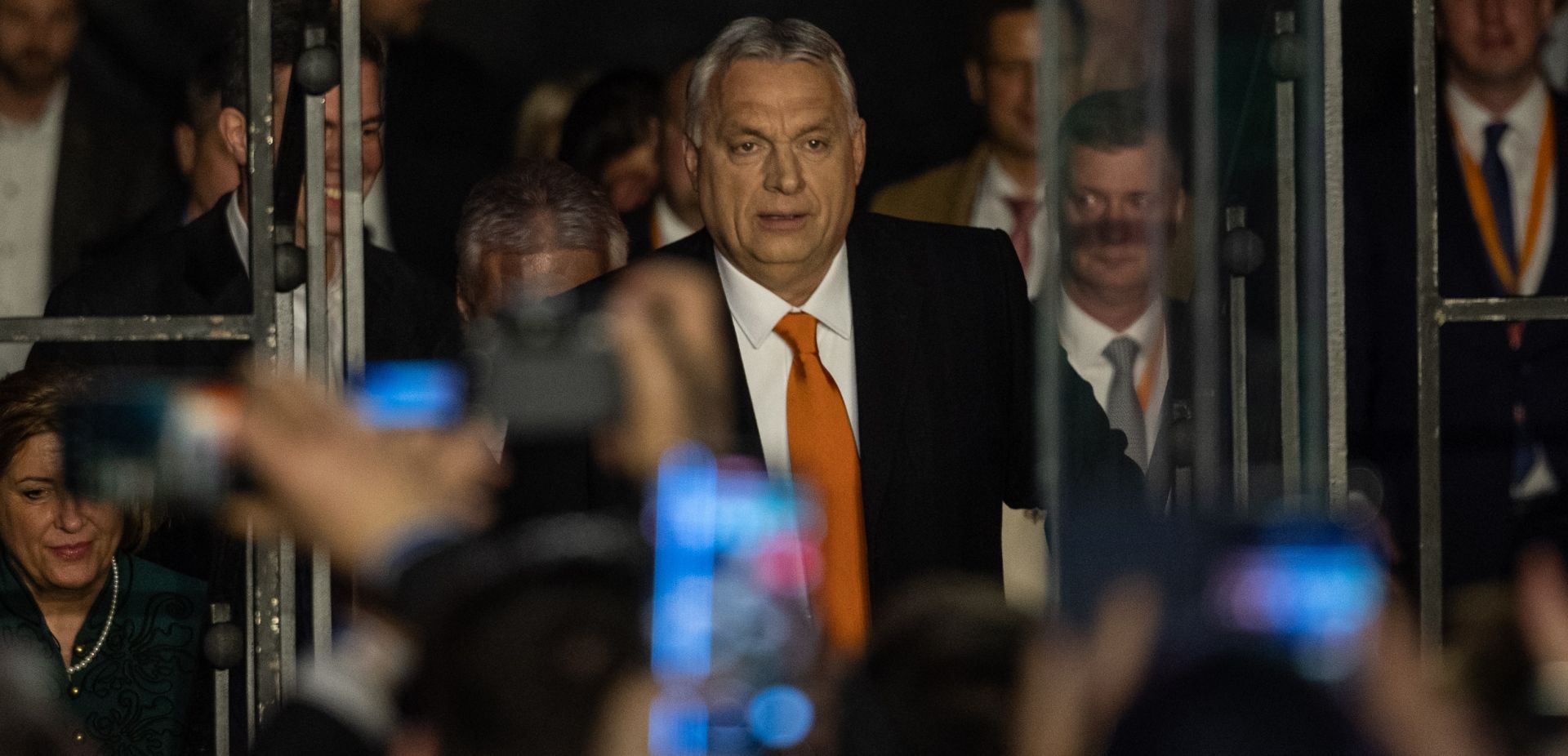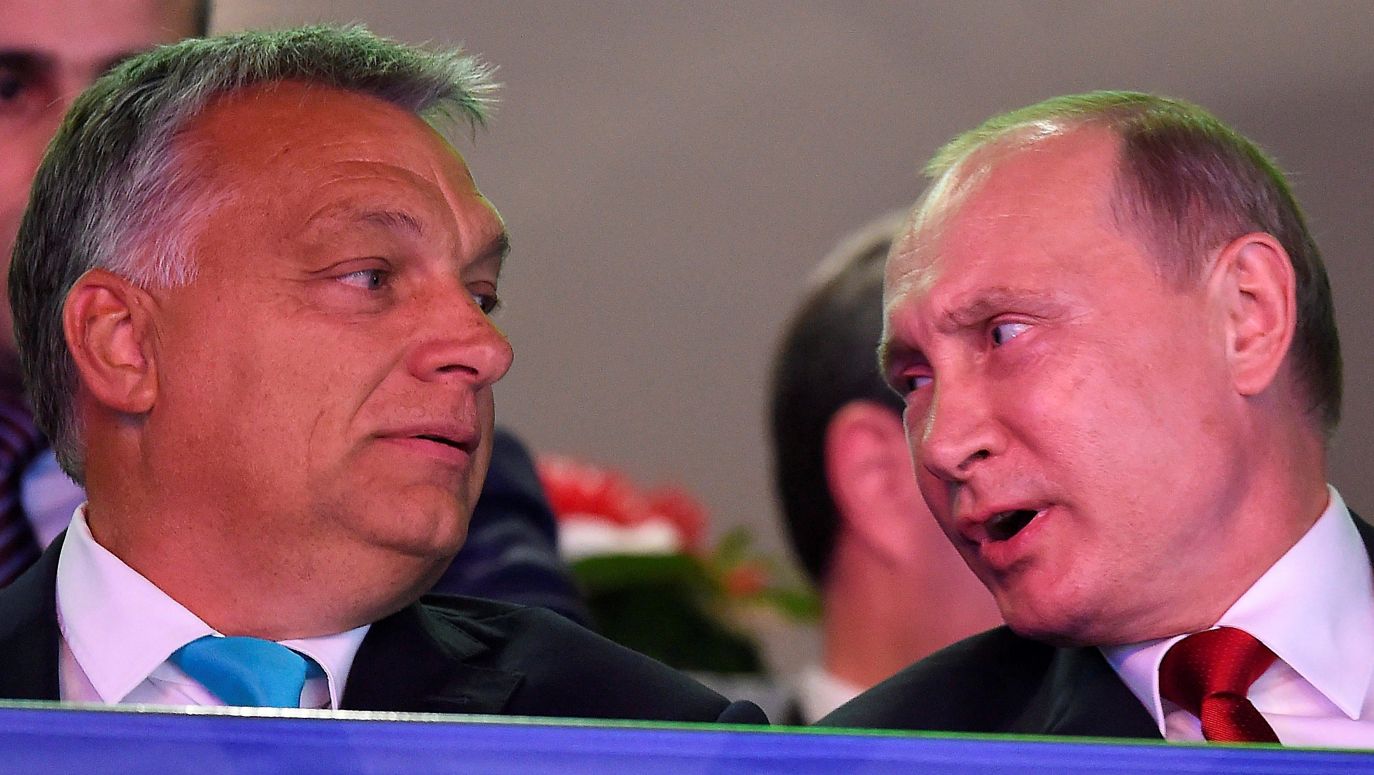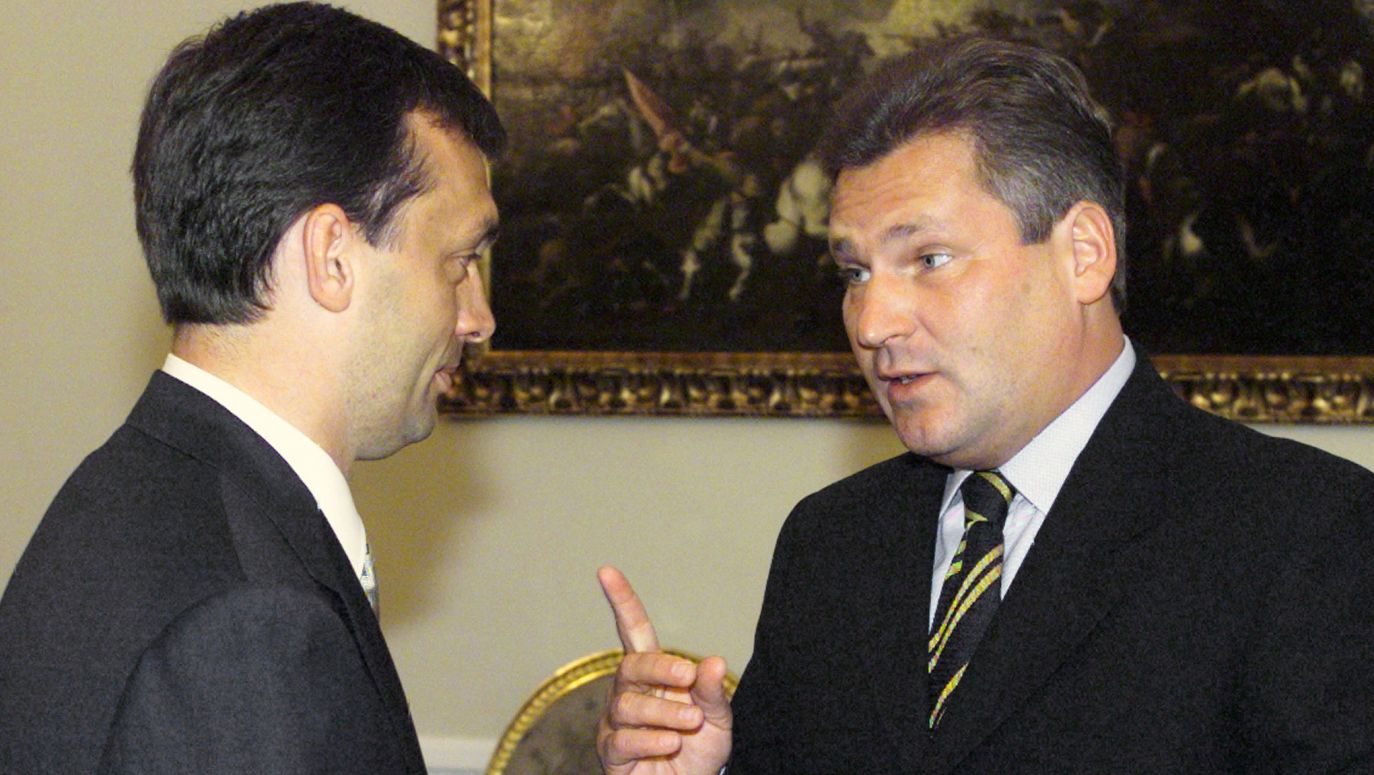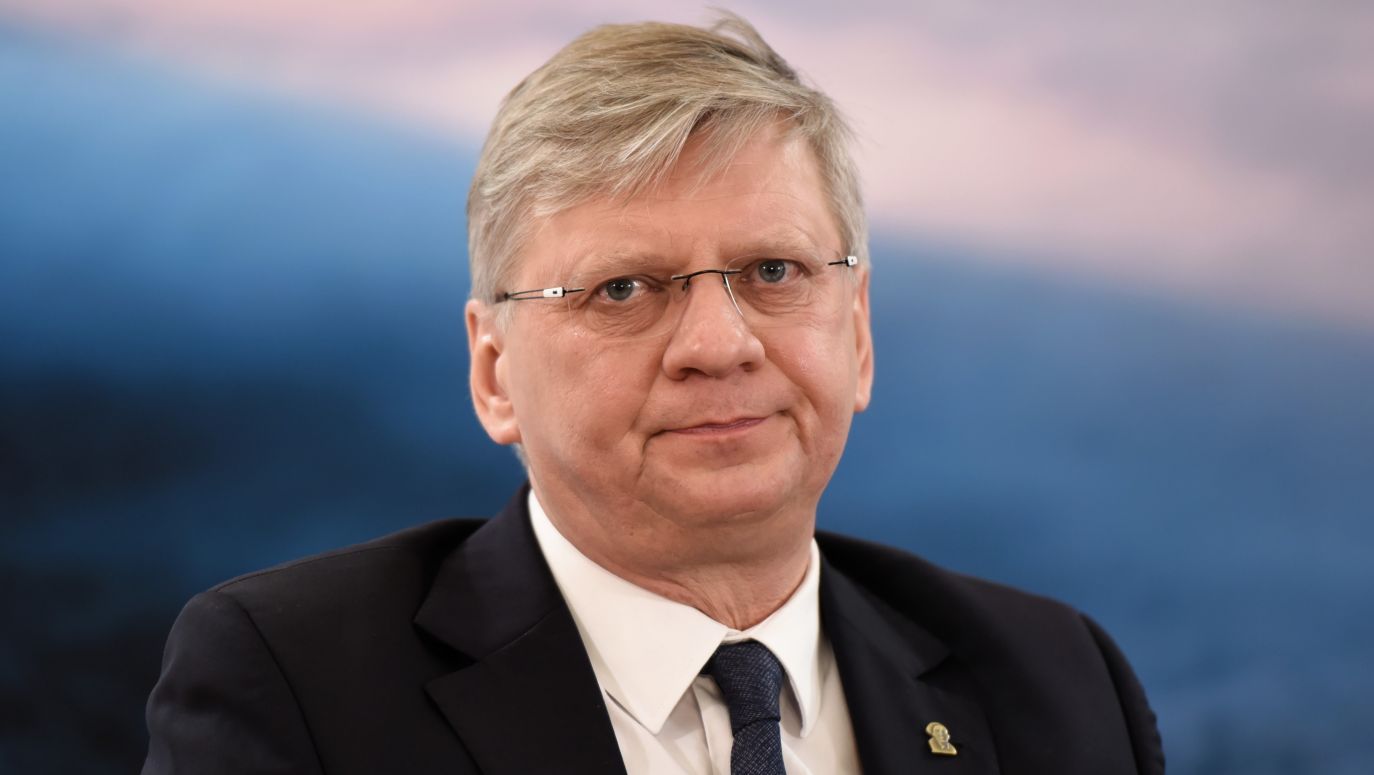Orbán has been in power for a long time and voters have seen enough of him. But Hungarians don’t see an alternative
13.04.2022
It’s not true that Fidesz won thanks to government-controlled media. In Hungary, a dominant place in the television market is held by the huge multinational RTL, which presents an anti-government narrative. While out of the ten largest news sites, eight skew towards the opposition – says Professor Maciej Szymanowski, a Hungarologist and director of the Wacław Felczak Polish-Hungarian Cooperation Institute.
TVP WEEKLY: The Fidesz and the Christian Democratic People’s Party (KDNP) coalition decisively won the parliamentary elections in Hungary, garnering 53.1% of the vote, compared to 35% of vote for the united opposition (with a 70% turnout), at the same time improving on their results from previous elections and ensuring a constitutional majority. This is the fourth victory in a row for Viktor Orbán’s party. What happened for Hungarians to once again put their trust in him?
MACIEJ SZYMANOWSKI: The elections were the summation of the last four years. And these were good for the average Hungarian, due to substantial economic growth and a rise in real wages among most professions (on the order of 6-7% annually), among other reasons. Additionally, Hungary has one of the lowest unemployment rates (3.7%) in the entire European Union. In 2010, when Fidesz came to power, unemployment was in the double digits. Now, a million more people are working than then – in a country of 10 million residents – and there is still market demand for more workers. This was also appreciated.
Viktor Orbán gave the Hungarians economic stabilization. Safety on the streets also pays dividends. Furthermore, Budapest as well as smaller towns – thanks to care given for public buildings – are looking better by the day.
Social policy is Orbán’s strong suit?
It is the specialty of Fidesz and the KDNP. President-elect Katalin Novák built his position on social policy. Above all, the government offers a broad program of aid to young married couples. For example, loans for unborn children – paid in advance. If a married couple is not going to have children, they will have to eventually pay off the loan. But if they do have them, then they do not have to pay off the loan from the state.
How much money are we talking about?
These are substantial amounts. If someone declares that they plan to have three children (or if they already have them) then state assistance amounts to roughly one-third of the value of a single-family home. Or the value of a smaller apartment – even in Budapest. Multi-child families can also count on a large auto subsidy. Moreover, they copied a Polish idea, namely – exempting everyone up to the age of 25 from income tax.
These actions by the government result in positive feelings in society; over the past two years 20,000-30,000 Hungarians living in the West have also returned to Hungary.
A serious challenge awaits Fidesz however. Hungary is struggling with inflation and high debts, among other things.
At the moment, inflation is high across the European Union. Hungary is no exception. And nothing indicates that anything will change in the near term. Next, debts were systematically reduced in recent years, but rose again during the pandemic; the current indicator of public debt amounts to around 80% of GDP. This is a huge debt, though it can still be serviced. At the same time, many EU countries are even deeper in debt, like France (114%) or Italy (156%).
In recent years, the government carried out a certain experiment relating to the fact that over 80% of Hungarian exports go to EU markets. So an attempt was made to change these proportions by trying to export to markets beyond the EU. It’s just that this didn’t quite work out. The barriers to the Russian, Kazakh, Turkish or Chinese markets, turned out to be insurmountable, and they could not be entered on a large scale.
Did anything work out?
I don’t know how much this was intended or whether it happened “by the way” (probably both), but in recent years, as part of the so-called policy of opening to the East, Orbán succeeded in attracting investors from Asia, including from Malaysia. Last year, the largest investor in Hungary wasn’t France or Germany, but South Korea. This bodes well since it’s tied to the appearance of new jobs and modern technologies.
Let’s add that Hungary takes special care of certain elements of their economy. Pharmaceuticals for example, which are world-class. It’s no coincidence that a Hungarian biochemist, Professor Katalin Karikó (living in the United States) was one of the people who developed a method of utilizing mRNA in vaccines, which contributed to the quick production of COVID-19 vaccines.
– I heard the opinion that the Hungarian soul, the key to which was discovered by Viktor Orbán, isn’t too demanding, kind of “Kádárian” [referring to the long-serving communist leader of Hungary, János Kádár] – for Hungarians, the most important things are a small house in the countryside, a car and that the Hungarian village be peaceful. Do you agree with this?
This opinion contains both truth and untruth. Certainly, the Hungarians (along with the Poles) belong to the most hard-working nations in the EU. It’s a society that is still establishing itself, which is plain to see. Not many people there work only one job. People work hard to buy their first house. It’s rare in Hungary to own several homes or apartments.
Fidesz is a provincial party. That’s where the elections are always decided. After All, Orbán is an salt of the earth Hungarian, he was raised in a small village. He has a good sense for social moods and needs. For example, in the last electoral campaign the opposition came up with the idea of a referendum (they didn’t gather signatures in time so it will take place in a few weeks) on whether a branch of China’s Fudan University should be established in Budapest. The government replied with a referendum on child rearing and the role of parents in education, including whether lessons on gender should be taught in schools without parental permission.
This situation illustrates well what issues occupy the minds of the opposition, focused on Budapest, and those of Viktor Orbán, who is one of the longest-governing prime ministers in Europe and is well-acquainted with the mechanisms of politics.
Orbán enjoys a reputation for being a great speaker. Is it justified?
He has phenomenal rhetorical skills. In recent times, only Tony Blair had comparable skills in this area. I know people who sincerely can’t stand Viktor Orbán, but they listen to his live speeches, since he often shares anecdotes, makes interesting comparisons and original jokes, engaging in wordplay. Thanks to this, his message is exceptionally fresh. These speeches will definitely not put you too sleep, no matter how long they last. Orbán is a first-class rhetorician. Currently the best in Europe.
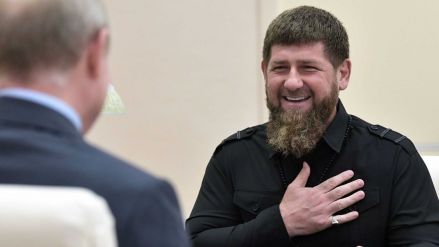
Wojciech Górecki: Currently Chechnya is more independent from Moscow than during the times of pro-sovereignty leaders.
see more
Do the election results attest to the fact that Hungarians like a firm approach towards the EU and good relations with Russia?
I don’t think anyone likes when someone else tries to arrange our world for us and tell us how to live. The behavior of certain EU politicians (from the front pages of newspapers) is insolent. And many Hungarians don’t like it. In truth, Victor Orbán benefits from this. The intense attacks against him from a few years ago, when he disagreed with the compulsory relocation of refugees and he ordered the building of a border wall – really helped him to mobilize public opinion. It’s similar with the blocking by the EU of funds from the Recovery and Resilience Mechanism.
Concurrently, Orbán has been in power for a long time. Really, much of the population has seen enough of him already; there is already a generation that only knows him as the prime minister. And many people would be glad to no longer vote for him. It’s just that they don’t see an alternative.
And what about relations with Russia? There is a common belief that Putin has Orbán wrapped around his finger.
This narrative is part of the political battle. This argument is loudly trumpeted. Including by those who have a lot on their conscience. For example, one of the leaders of the opposition, Ferenc Gyurcsány, who as prime minister (2004-2009) maintained close contacts with the Kremlin. Additionally, until 1989, he was the leader of the Hungarian Young Communist League (KISZ) – and this was a more important position than that held by Aleksander Kwaśniewski [president of Poland, 1995-2005] as a minister during the Polish People’s Republic (PRL). And now Gyurcsány is criticizing Orbán for meeting with Putin.
Recently, while preparing to write an article, I checked how many meetings there were between the leaders of EU countries and Vladimir Putin in the past 3 years. Viktor Orbán met with him twice – 30 October 2019 and 1 February 2022 [three times since the beginning of his term in 2018 – ed.]. Angela Merkel – five times, and Emanuel Macron – seven times. Additionally, Chancellor Merkel had twenty-seven telephone conversations with Putin, and President Macron – over thirty, while Prime Minister Orbán – zero [one conversation during which Orbán invited Putin to peace talks, took place after this interview – ed.]
But there is no lack of gestures of friendship between Hungary and Russia. Vladimir Putin congratulated Viktor Orbán on his victory in the last election. Several months ago, the head of the Hungarian Ministry of Foreign Affairs, Péter Szijjártó, was awarded with the Russian Medal of Friendship... It looks like Hungarian-Russian relations are very close.
I wouldn’t go that far. The Hungarians define the relations with Russia as rational, so they are trying to stay on good terms with them. It’s a consequence of a very strong dependence on Russian energy supplies, above all natural gas. Among EU countries (alongside Austria) in this respect, they are the most dependent on Moscow.
The liquified natural gas terminal in Croatia is also a source of deliveries. While Hungary, bound by a signed contract, can only receive a billion cubic meters of gas from there annually, and their need – ten billion. The situation is difficult, all the more so that Hungary has no access to the sea. If Russia were to cut off supplies today (this applies to other EU countries as well), it would paralyze the economy, deprive homes of heating, etc.
Do you anticipate that Hungary will want to reduce their energy dependence on Russia in the near term?
They are definitely trying hard to increase natural gas deliveries from Croatia. They once supported the idea of building the Nabucco pipeline [bypassing Russia, leading from Asia, through Turkey, Bulgaria and Hungary to Western Europe – ed.], which President Lech Kaczyński [president of Poland, 2005-2010] was also strongly pushing for. Unfortunately, the project ended in a fiasco. It seems that without the support of Germany, Austria or Italy in developing a solution to the problem, it will be exceptionally hard for the Hungarians to gain energy independence from Russia. Of course, they are developing renewable energy – especially since there is a lot of sun in Hungary – and this might be a certain alternative. But this is more of a song of the future. According to current plans: 2030.
There is a widespread view that the key to Viktor Orbán’s success is government-controlled media. Veronika Jóźwiak, an analyst for the Polish Institute of International Affairs (PISM), said in a post-election analysis that, “the [Hungarian] society was in a certain sense formatted by the media; by the overwhelming advantage in messaging by the ruling party – not only in public media but in [other] pro-government media, more or less tied to Fidesz.”
I don’t agree with this view. In Hungary, a dominant place in the television market is held by the huge multinational RTL [which is owned by the German Bertelsmann AG corporation – ed.], which presents an anti-government narrative. Just like in Poland, when opinions are formed that media presenting “the whole truth, 24/7” don’t count, the same thing is happening in Hungary. The opposition has a clear advantage in terms of TV channels (RTL) and websites. The largest Hungarian website, 24.hu, presents an anti-Orbán opposition narrative. Similarly with telex.hu (the #2-3 most popular site in Hungary). Out of the ten largest news sites, eight skew towards the opposition
It's different on the daily newspaper market. Indeed, out of the five largest newspapers, four are pro-government, one for the opposition – Népszava, the one with the largest circulation. As far as weeklies, the proportions are more or less even – there are openly pro-government weeklies and openly anti-government ones. So it’s hard to speak of censorship or an information blockade. It’s totally ridiculous. The people formulating such views probably don’t carefully follow the media market there, they just share secondhand opinions.
Commentators asserted that a consolidated opposition has a considerable chance for victory in the elections, while it was the best result for Fidesz since coming to power in 2010. In the meantime they suffered a defeat in the election. What went wrong?
Above all, they didn’t present a platform. Though agreeing upon a single political program in a situation where six parties formed a coalition was undoubtedly a very tall order. Here we had the Greens, liberals, post-communists and nationalists. So reaching a consensus in programmatic matters would have been some feat. As a result, the one common goal of the opposition was to remove the current government from power.
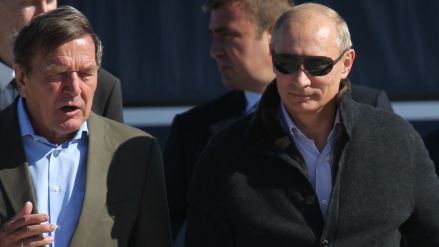
How the Kremlin’s lobbyists are steering European politics.
see more
Were you surprised that the Fidesz-KDNP coalition won by such a large margin? In pre-election polls the gap between them and the united opposition was not very large.
Not really, since, as I always remind people, elections in Hungary take place in single-mandate districts. So polls that indicate overall social moods aren’t the most important. How people view their local representative or candidate for representative, is more meaningful. And what they personally represent.
Beyond this, the results of many polling companies were very optimistic from the point of view of the opposition. If we look at the analysis of more reputable companies, such as the Median research institute, in December or January they pointed towards an even greater advantage for Fidesz than the results of the election showed. Next, Fidesz lost some support, but continued – throughout the spring – to lead in polls.
It was also difficult for the opposition to select a candidate for prime minister. Initially, the mayor of Budapest, Gergely Karácsony, was supposed to be the candidate. But after a certain time it was determined that he has no chance to win in the election. Next, another person was put forward – Klára Dobrev, who won in the primaries. Ultimately, the third place candidate from the primaries was chosen, Péter Márki-Zay, mayor of the small city of Hódmezővásárhely. His candidacy was supposed to be an offer to right-wing voters, and he himself – a better version of Viktor Orbán.
But this didn’t happen.
During the campaign, Péter Márki-Zay committed numerous gaffes which Fidesz ruthlessly took advantage of. He even lost in his own electoral district. He wasn’t the best candidate for prime minister.
Could the Russian invasion of Ukraine have influenced the election results?
If we look at the polls of the Median research institute, you can see that while support for Fidesz didn’t grow in March (but it also didn’t drop, it stayed around 50-52%), support for the opposition dropped. This was probably influenced by Péter Márki-Zay’s statement that if he won the election, he would send weapons and Hungarian soldiers to Ukraine. This could have been a tough message for Hungarians, especially since democratic societies generally don’t push for war. Later, this message was softened by the opposition along the lines of: “We won’t send soldiers, just weapons, and only under certain conditions.” But the damage was done. The first statement of the candidate for prime minister in the election campaign was utilized by Fidesz.
Andrzej Sadecki, an analyst for the Centre for Eastern Studies, wrote in a post-election commentary: “The war in Ukraine showed the limits of the policy of balancing between the West and Russia. Cooperation with Moscow is becoming an ever-increasing burden, and important economic cooperative projects (building the Paks Nuclear Power Plant and freight rail lines) will probably end in a fiasco.” Do you anticipate a course correction in Hungarian foreign policy?
It seems that Hungary will activate itself in Central Europe. And they will go the way of the Czech Republic, which was withdrawn for years, but recently began to change its position. The geopolitical situation demands it. Viktor Orbán also speaks of this.
In our institute we just published a book about Hungary in 2010-2022. It contains a page with Orbán’s statements on East-Central Europe. Among other things, he said that Central Europe must carry out an independent and active politics, in order to avoid becoming a crumple zone again, where world powers treat our countries like pawns on a great chessboard. So I expect Hungary’s activation in the region.
Relating to the course correction of the policy towards Russia – above all, Prime Minister Orbán is going to take Berlin’s policy into account. This factor is very carefully analyzed by the smaller countries of Central Europe. I’m afraid that Berlin is taking a wait-it-out approach, which will end with an attempt to make a deal with Moscow...
If, within the framework of the European Union – with the help of the United States – it’s not possible to bring about a lasting change in German policy, it’s hard to expect a meaningful change in Hungary’s policy. Though on numerous occasions, Viktor Orbán has shown that he can be brave and stand up to much stronger partners, if he determines that it’s strategically beneficial for him and his own country.
A What’s the attitude of regular Hungarians to the Russian invasion of Ukraine?
Hungarians are quite divided on this matter. This is probably a result of the relations between Budapest and Kiev not being the best in recent years.
Why?
First of all, because of the status of the Hungarian language in Ukraine. After the passage of the language law there, the schooling of national minorities was transferred to local governments. And if a local government in a given town didn’t have enough funds and they had to choose between closing a school for the majority or a school for the minority, the upkeep costs of which are about the same (a minority school building also needs to be heated, and the number of teachers isn’t much smaller) – then we know, the minority school was closed. Otherwise, the head of the commune or the mayor would lose the election.
And what’s your reaction to the words of Viktor Orbán, who, in a post-election speech, alongside his enemies – including George Soros and the “bureaucrats from Brussels” – listed the president of Ukraine, Volodymyr Zelensky?
I think that it was Viktor Orbán’s reaction to that morning’s statement by Zelensky on the day of the election, when he labeled Orbán as Putin’s greatest friend. There was no election silence and the Hungarian media immediately picked it up. The acrimonious exchange between Orbán and Zelensky was certainly unnecessary.
We must appreciate however than Hungary involved itself in the greatest humanitarian aid effort that it took part in since 1989. Even greater than during the war in the Balkans. Then they took in 150,000 refugees. And currently – well over half a million refugees from Ukraine (remember that this is a country of 10 million people). The Hungarians are also sending trucks with humanitarian aid. In any case, Orbán suspended his election campaign for three days and went to coordinate the relief operation at the border; then his wife took over. This is a huge logistical undertaking which Hungary – like Poland – is handling very well.
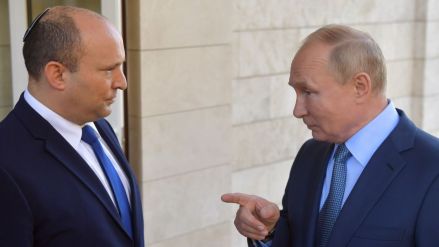
Why didn’t Israel impose sanctions on Russia?
see more
One might still have the feeling that Hungary could be even more involved in helping – if only by supplying weapons to Ukraine, like other countries are doing.
Hungary condemned the Russian aggression and supported all sanctions. Additionally, they are allowing transports of weapons through their territory (probably a portion of them ultimately reach Ukraine). Whereas the Hungarian government warned that it didn’t want the Hungarian-Ukrainian border – due to the Hungarian minority living in the area – to be utilized as a place for weapons transfers. And this is being honored. I don’t hear NATO protesting against this.
Moreover, during the annexation of Crimea, Russia accused Hungary of illegally helping Ukraine. Russia showed pictures of Hungarian tanks, supposedly smuggled from Hungary to Ukraine. It turned out that, indeed, Hungarian tanks were photographed, but they had been sold to the Czechs. Currently, the situation has changed, Hungary is suspected of a lack of military aid.
Let’s be serious though. The quieter the subject of weapons transports to Ukraine, the better. This isn’t a matter that countries are eager to brag about because of the unpredictability of the aggressor.
– Interviewed by Łukasz Lubański
– Translated by Nicolas Siekierski
Prof. Maciej Szymanowski is a Hungarologist, Director of the Wacław Felczak Polish-Hungarian Cooperation Institute. He is the former director of the Polish Institute in Budapest (2001-2006) and the Polish Institute in Prague (2006-2010), and also a lecturer at the Pázmány Péter Catholic University in Budapest.
